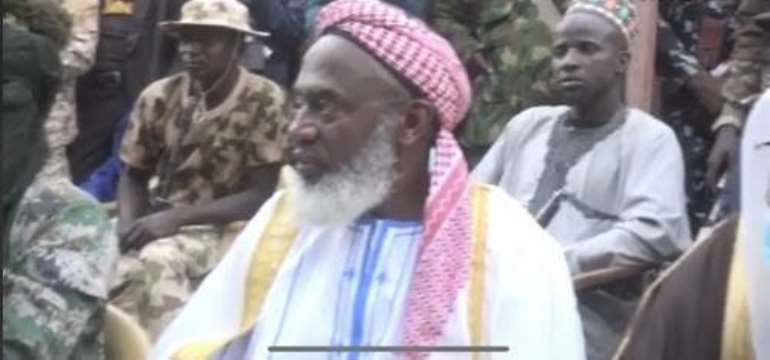Sheikh Gumi, Nigeria Leaders and the burden of negotiating with bandits

The recent spate of killing, murder and abduction which are the byproducts of insecurity in Nigeria has generated so much heat and controversies jn recent times. To say the least is to say that.
Its mystery has been shrouded as it were in something to be literally referred to as a hard shell making it very difficult to unravel. What has led to the conundrum from a frank perceptive is nothing but the calls to negotiatie with these enemies of the state whose despicable activities cannot be told on the tongues of mere mortals.
In more recent times, a highly revered Islamic personality, Sheikh Ahmad Gumi has been the individual championing for the government to negotiate with bandits. Further to this is the fact that Gumi had gone far to meet with these dare devil criminals in their hideouts to engage them in peace talks.
As a brief overview, Sheikh Gumi isn't a loner as he is a respected cleric who has earned attention from all and sundry for his uniqueness in speaking the truth without fear or favour.
His style of pursuing justice, equality and fairness is primus interested. Educationally he is versed having earned various degrees both nationally and internationally.
While his calls for negotiating with bandits could be termed as a laudable Initiative,considering the fact that the cost of war iis much more greater than the cost of peace and the prodigal son should be given another chance to prove his worth having shown signs of remorse. Nonetheless, several questions ran through the mind of the writer as he tried to capture the calls of negotiation with blood thirsty personalities who have turned many homes into mourning grounds.
The first is the essence of the negotiation especially in critical times like this when the country is experiencing both political, social, economic and religious turbulence.
Another critical question is the need to know what plans have been out in place for the victims of the activities of the bandits. After all, negotiating in any circle involves two or more parties and it is necessary that both parties are treated equally to avoid conflict.
Further to this is the essence of considering the aftermath of the negotiation process especially considering the Nigerian social political fabric which has woven the country along ethnic and tribal lines.
There is no need digging into the annals of history not records to recount the mayhem which bandits have caused acorss the country. However, the absence of equity overtime has made it almost impossible to rid the nation of these criminals.
Apart from this is he fact that several other groups have different concerns and who engage in public outcries. We would not be quick to forget the Niger Delta militants, the Boko Haram Insurgents, the quest by the Indigenous People of Biafra (IPOB) etc.
I think Nigerian leaders both at the state and local level must begin to understand the fact that what applies to one must apply to all. If the government is planning to negotiate with people who have spilled the blood of martyrs on the nation's sacred soil, I think other groups who have genuine concerns deserve a voice too.
It should be very clear that the process of restoring peace in the Northern part of the country and Nigeria in general should be based on practical and workable strategies void of ethnic and tribal sentiments.
Our inability to make this happen will only do more harm than good. On this note, I wish Nigeria and Nigerians well in their quest to entrench peace in the polity.
